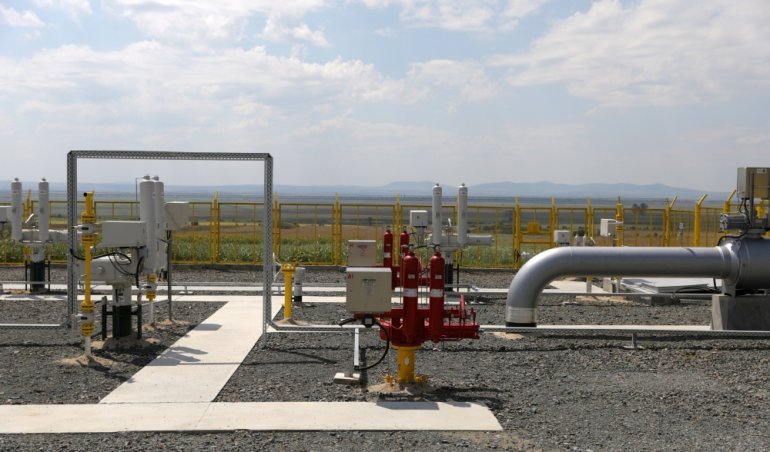Bulgaria will go ahead with plans to spend €1.4bn ($1.59bn) to build a new gas link to Turkey to transport Russian gas from the Turk- Stream pipeline to Europe, by- passing Ukraine to the south. Bulgarian lawmakers gave the green light to the state gas com- pany Bulgartransgaz to launch tenders to build a new 484km gas link that will carry mainly Russian natural gas. TurkStream is part of the Kremlin’s plans to bypass Ukraine, currently the main transit route for Russian gas to Europe, and strengthen its posi- tion in the European market. Its two lines will each have an annual capacity of 15.75bn cubic metres. Russian energy giant Gazprom has completed the fi rst line of pipeline to Turkey for local gas consumption. Gazprom said yesterday it was considering booking capacity, which would eff ectively ensure that the gas Russia plans to send to Europe through its Black Sea pipeline will pass through its land. The news comes at a time of increased tensions between Russia and Ukraine, and Sofi a is concerned that the confl ict may once again put the brakes on Russia’s plans to ship gas through Bulgaria to Europe, by- passing Kiev. “What follows from now on is strict observation of European Union rules and procedures, so that we can eliminate all even- tual mistakes that in the past have led to the cancellation of South Stream,” Energy Minister Temenuzhka Petkova said. Bulgaria is still smarting from the 2014 cancellation of Russia’s plan to bring gas to its shores with its South Stream pipeline. The project, which had prom- ised the Balkan country on the European Union’s periphery money and clout, was dropped by Russia after it blamed oppo- sition from Brussels. At present, Gazprom trans- ports about 14bn of cubic metres (bcm) of gas a year to Turkey via Bulgaria through a contract that runs through 2030. Bulgaria is ready to give up on its take-or-pay option in the current contract, if it gets a new 20-year deal to transport Rus- sian gas through the new pipe- line and says its net profi t for the period could be as much as €2.2bn. Brussels has been concerned that Bulgaria may opt to simply send Russian gas onto Europe to earn transit fees rather than allowing it to be traded at its planned Balkan Gas Hub, ce- menting its almost complete de- pendence on Gazprom. Some energy experts have also voiced concerns that Bul- garia is rushing too quickly with projects linked to Russian gas and dragging its feet with plans to develop gas links that would allow diversifi cation. In a bid to ease such concerns, Sofi a says the new pipeline will be built in line with EU energy rules. Bulgaria’s parliament voted that Bulgartransgaz should set up a gas trading bourse and take a 20% stake in a liquefi ed natu- ral gas terminal off the coast in northern Greece.
Bulgaria prepares to transport Russian gas to central Europe

Related tags :


